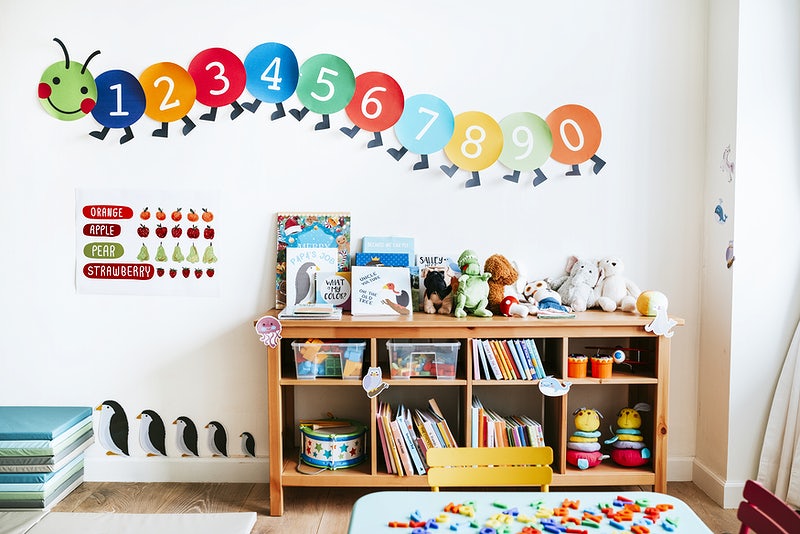Research says that till the age of 5, children are in the most growth-intensive phase of their lives. Their brains are extremely receptive during this period and everything they come across can leave a profound impact on them. This is why your child needs a perfect learning environment right from the beginning so that they can achieve their full potential as time goes on. Thus, Montessori nurseries are the perfect choice for a child’s early education.
A Montessori doesn’t just help children build their fundamental understanding of language, logic, and reasoning – they create different curriculums for the various stages of early development to make sure that your child’s learning methods evolve with them.
Here are the primary stages of development for early learning during which a Montessori nurtures your little one.
Motor, Emotional, and Mathematical Skills (Birth Onwards)
Children display motor and emotional skills right from their birth, whereas their mathematical proficiency surfaces a few weeks later. Even though their capacity to love, express affection, or estimate things is limited at the time of birth, it rapidly grows over time.
A Montessori enhances these skills by letting them build a strong physique through playing, develop greater emotional abilities by interacting with peers, and get better at math by practising simple analytical operations.
Order and Pattern Identification (6 months onwards)
Finding patterns and logic in everything we observe is a basic human tendency. Babies can start to exhibit this even at the tender age of 6 months. Grouping items of the same colour together is one of the earliest signs of order displayed by kids.
Montessori helps children bring the same order into their disposition. Children are taught healthy habits and activities which help them form positive behavioural patterns.
Development of vocabulary and interest in everyday objects (1 year onwards)
The 1-year mark is usually when toddlers start to say simple words. Since by this time children have gotten some understanding of the world around them, their curiosity is at a newfound peak. They’re always interested in new objects and trying to touch everything they lay their eyes on.
Nursery educators feed this zeal for knowledge amongst children by urging them to speak and identify daily objects around them using a common vocabulary.
Delving into sensations, shapes, and sounds (2.5 years onwards)
This encapsulates 3 of the 5 major human senses – touch, sight, and hearing. Around the midway point of their early learning process, children start to recognize various shapes, sensations, and sounds. They become sensitive to the things they touch and hear. Even the endless scribbling on papers and walls is a sign that they’re trying to replicate basic shapes.
A good Montessori will introduce your child to elements such as playing blocks in various shapes and calls of different animals. This will help in elevating their recognition abilities.
Appreciation for rhythm and music (3 years onwards)
Regardless of their age, it’s hard to find an individual that doesn’t enjoy music. The same sentiment is reciprocated against children as they develop a love for music and basic rhythms around the age of 3.
This is why Montessori teachers always urge children to sing along to different rhymes and dance to their beat. It helps them further enjoy music and get used to moving in a rhythm.
Reading and Writing (4-5 years onwards)
This is the ultimate stage of a child’s early education. Under the right guidance, your kid should be able to read and write basic texts by the age of 5. This helps them finally embark upon their journey towards advanced education, a process that can be eased by a healthy experience at their nursery.
Conclusion
A child’s early learning can highly impact how they approach education for the rest of their lives, so you must pick the right Montessori for them from the get-go. A good Montessori Nursery lets your child discover the wonderful world around them under a safe, caring, and imaginative setting. They should make learning fun for your loved ones so that valuable lessons they pick up stay with them always.




